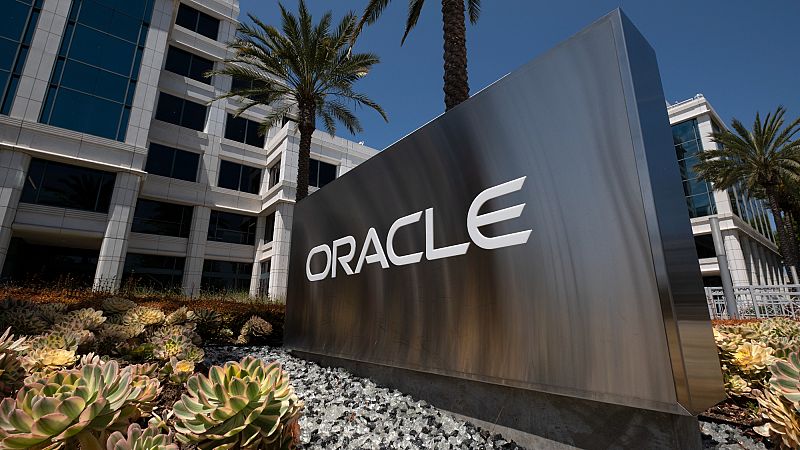What is Oracle, and how has the 50-year-old company made a tech comeback with AI and TikTok?

American technology company Oracle was founded over 50 years ago and it has remained relatively quiet since the artificial intelligence (AI) bubble inflated and took off in 2022.
That was until a massive $300 billion (€253 billion) cloud computing contract was signed with OpenAI this month, resulting in Oracle’s co-founder and chief technology officer, Larry Ellison, briefly becoming the world’s richest person.
Now, Oracle could become part of a consortium of companies that might buy TikTok’s US business, saving the social media app from going dark in America, according to media reports.
So what is Oracle, and why is it making a resurgence in social media and AI?
‘A global, publicly-traded powerhouse’
Oracle was founded in 1977 after Ellison showed co-founders Bob Miller and Ed Oates a paper about a working prototype for a “relational database management system” (RDBMS), a program that draws relationships between several databases.
The three of them realised that no one had commercialised the technology, so they decided to do it. They developed a company called Software Development Laboratories (SDL) whose main product was the Oracle database, named after a project they were asked to develop for the US Central Intelligence Agency (CIA).
The Oracle database is still used by companies such as telecommunications provider AT&T, Deutsche Bank, health technology provider Munich Re and automotive company Stellantis.
The database made its debut in 1979 at a time when computer systems were “enormous” and powered by “arcane and inefficient software,” according to Oracle.
“Only highly trained professionals could use the complex machines … software developers, meanwhile, sat - computerless - writing code on pads of paper at their desks,” it said.
The company renamed itself to Oracle in 1982 and said they simplified data management, built solutions for emerging computing platforms and made the system inoperable so data could be synchronised.
By the end of the decade, Oracle went public on the Nasdaq composite and grew the company from 35 employees into a “global, publicly traded powerhouse,” worth more than $500 million (€422 million) in revenue, the company said.
By 2011, Oracle launched Fusion Cloud applications, its first foray into cloud storage by introducing a “complete suite” of software accessible online via a subscription (Saas).
Since then, Oracle has released over 100 cloud services that support more than a thousand government customers across at least 60 data centres, according to Forbes.
Why does the company matter now?
Along with the Oracle database and cloud computing software, the company also provides business software for large organisations and integrated hardware and software systems.
When Oracle pivoted to cloud computing in the 2010s, it started to build data centres to host its public cloud databases. Data centres are the main power generators that power the large language models (LLMs) needed to train artificial intelligence (AI) models.
Oracle employees said the company had four data centres throughout North America, two in Europe (the United Kingdom and the Netherlands) and two in Asia, according to a 2012 article. That has grown now to an estimated 51 public cloud regions in 26 countries, the company said.
Now, Oracle runs a cloud infrastructure that it deploys in data centres, which it claims “lets [companies] run AI workloads just like you would on-premises but it also lets [companies] scale up and down as needed,” to save costs.
Oracle has also leaned into partnerships with AI companies and competitiorssuch as Microsoft. In 2023, Oracle announced that its customers could deploy its databases through Microsoft Azure through the Database@Azure partnership.
It became the cloud computing provider of choice for TikTok in 2020, which the company was influenced by the success of video call software Zoom in migrating its capacity to the Oracle Public Cloud. The deal also saw Oracle take a 12.5 per cent stakein TikTok Global stock.
The company also signed several strategic partnerships with OpenAI, including the September $300 billion (€253 million) cloud computing agreement, where the AI company will buy computing power from Oracle over five years.
The agreement is part of the US Stargate Project where Oracle, OpenAI, Softbank and investment firm MGX will spend up to $500 billion (€422 million) in AI infrastructure throughout the US before the end of the decade.
Oracle has since 2023 launched h a whole suite of AI-powered products, which includes AI agents to streamline work in human resources.
Today

